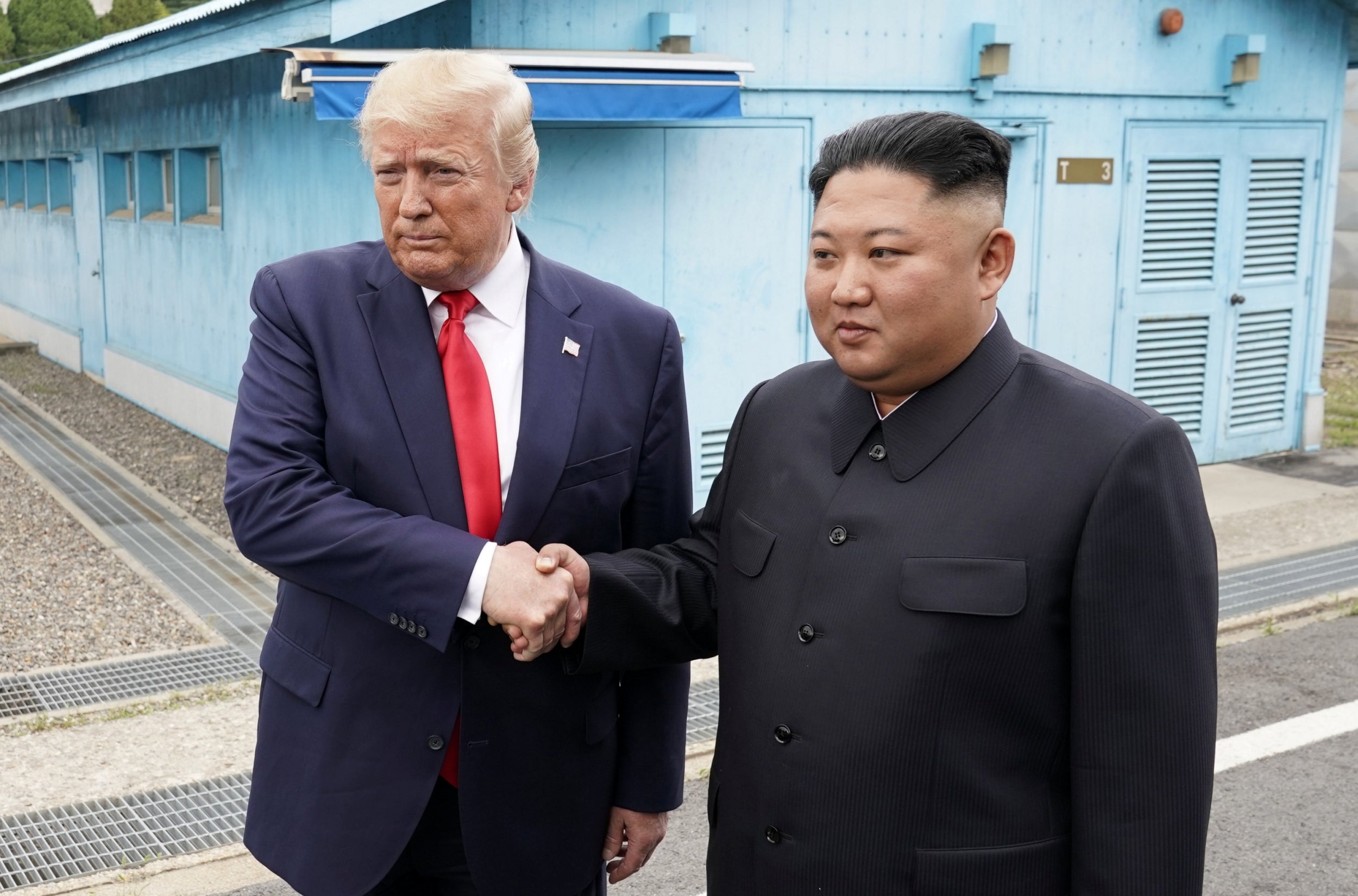New White House press secretary left with bruises after scuffles between North Korean security guards and journalists
Chaotic scenes see officials shoving and attempting to block press
Your support helps us to tell the story
From reproductive rights to climate change to Big Tech, The Independent is on the ground when the story is developing. Whether it's investigating the financials of Elon Musk's pro-Trump PAC or producing our latest documentary, 'The A Word', which shines a light on the American women fighting for reproductive rights, we know how important it is to parse out the facts from the messaging.
At such a critical moment in US history, we need reporters on the ground. Your donation allows us to keep sending journalists to speak to both sides of the story.
The Independent is trusted by Americans across the entire political spectrum. And unlike many other quality news outlets, we choose not to lock Americans out of our reporting and analysis with paywalls. We believe quality journalism should be available to everyone, paid for by those who can afford it.
Your support makes all the difference.The incoming White House press secretary became embroiled in a scuffle with North Korean officials during a brawl between reporters and the country’s security guards.
Stephanie Grisham was left with bruises after chaotic scenes saw officials shoving and attempting to block the press.
The jostling came as Donald Trump became the first sitting US president to enter North Korean soil – stepping over from the Korean Demilitarized Zone (DMZ) to shake hands with the North Korean leader.
The fracas intensified as reporters tried to enter a room inside the Freedom House on the southern side of Panmunjom where Mr Trump and Kim Jong-un were meeting after exchanging initial handshakes on the border.
North Korean guards tried to physically prevent members of the US press pool from entering the room, pushing and shoving, and the Secret Service stepped in to intervene.
A source on the scene said Ms Grisham got in “an all out brawl” with the North Koreans, according to CNN.
Ms Grisham, Melania Trump’s spokesperson who had been with the president’s campaign team since 2015, could be seen later directing reporters outside the building in which the two world leaders met.

Mr Trump, who met Mr Kim in a historic meeting in Singapore last summer, walked towards Mr Kim, shook hands and greeted him, and then stepped back across a line marking the North Korean border. The DMZ is a border barrier that divides the Korean Peninsula roughly in half.
The pair then walked back over into the South side, where the US president invited Mr Kim to the White House and the two leaders held a bilateral meeting.
Mr Trump said: “I’ll invite him to the White House right now. A lot of really positive things are happening. Really positive.”
He added: “Stepping across that line was a great honour.”
The impromptu meeting was organised yesterday, both leaders said, after Mr Trump tweeted Mr Kim suggesting they meet and “say Hello(?)!” while he was in the area for the G20 summit in the Japanese city of Osaka.
Mr Trump said the meeting was “very historic” and hit out at his critics who have argued that nothing has emerged from his two summits with Mr Kim. The US president was accompanied to the DMZ by South Korean leader Moon Jae-in.
North Korea – known as the so-called “hermit kingdom” – is widely thought to be the most secretive and isolated regime in the world.
According to the UN, the overwhelming majority of the country’s 25 million citizens endure starvation and live with the threat of forced labour camps and public execution.
A landmark UN report detailed cases of “extermination, murder, enslavement, torture, imprisonment, rape, forced abortions and other sexual violence, persecution on political, religious, racial and gender grounds, the forcible transfer of populations, the enforced disappearance of persons and the inhumane act of knowingly causing prolonged starvation”.
The UN estimates there to be between 80,000 and 120,000 political prisoners detained in four large political prison camps in the country.

Join our commenting forum
Join thought-provoking conversations, follow other Independent readers and see their replies
Comments